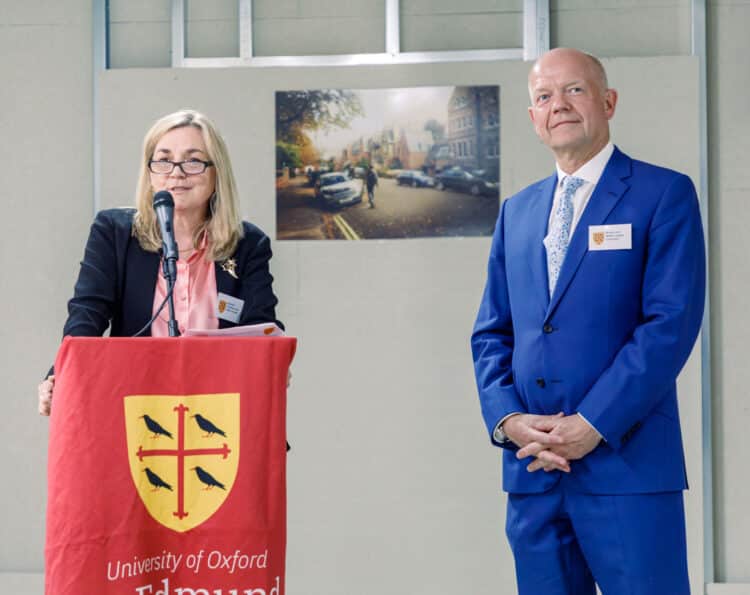Sustainability at St Edmund Hall
St Edmund Hall is committed to being recognised as one of the greenest and most environmentally sustainable colleges in Oxford. Our Sustainability Sub-Committee has been working with our 900 students and staff to greatly reduce our impact on the natural environment, manage resources that we impact in a sustainable way, and conserve and enhance biodiversity across all our sites. We outline below the work we have undertaken to create a baseline of data against which we can now track our progress, set meaningful sustainability targets and record activities and successes that we have achieved to date.
This page was last updated on Wednesday 3 December 2025, 14:17
The following response was sent to CLOC by the Conference of Colleges on 14 November 2021:
Oxford Colleges are committed to taking urgent action to combat the climate crisis. We believe that our response is best and strongest when we pool our expertise. We don’t consider that a competitive league table of the sort you propose is a useful tool, or that it provides information that can be relied on. We don’t agree with your methodology. Your assessment of the policies and practices of individual colleges is both inaccurate and incomplete, so that the “scores” you have allocated to colleges are wholly misleading. In any event, individual colleges are not comparable, given the great variety of their resources and buildings. Overall, we consider that your league table gives rise to the risk of box-ticking rather than genuinely effective action.
Oxford Colleges are engaging closely with the University, with experts in the field, and with their undergraduate and graduate communities to set policies on sustainability, including through our Sustainability Working Group. The Group’s current efforts are focussed on agreeing a common way to measure and report on our energy and water use and our biodiversity, and we plan to report on these using an agreed common approach early next year. Meanwhile, there is information about what we have already done in our report from last May, at Sustainability work group report_Existing intiatives_May2021.pdf (ox.ac.uk) and on the University’s policy, at Environmental Sustainability Strategy | Sustainability (ox.ac.uk)
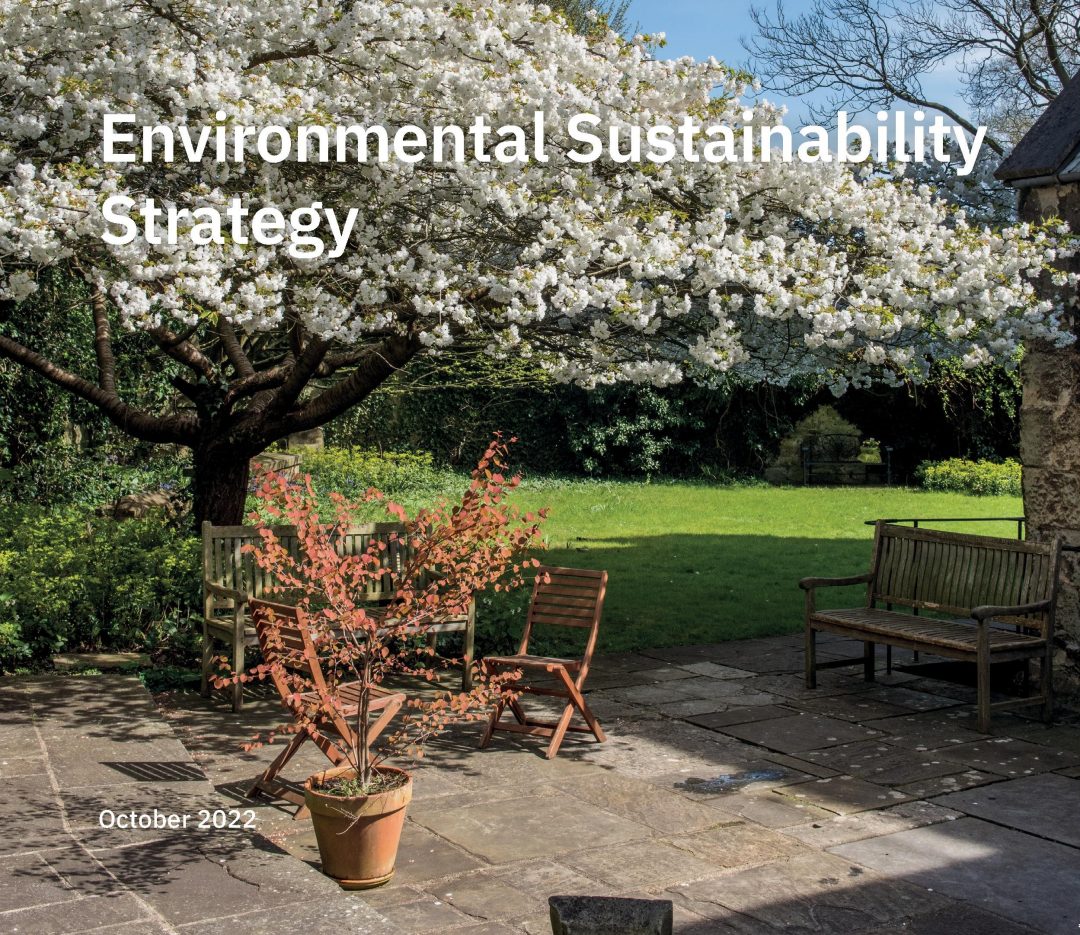
Environmental Sustainability Strategy 2022
This strategy sets out how we aim to transform the estate of this 800-year-old college into a sustainable and environmentally thriving site for future generations of Aularians.
Sustainability Dashboard
The below data summarise St Edmund Hall’s energy and commodity consumption across all College-owned sites from 1 October 2020 to 30 September 2025.

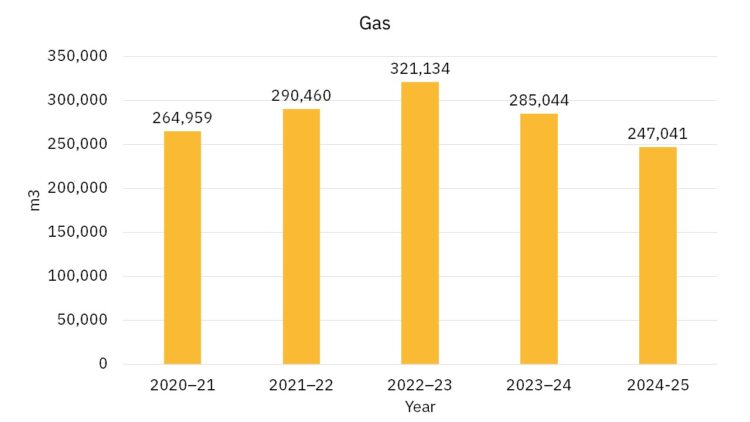
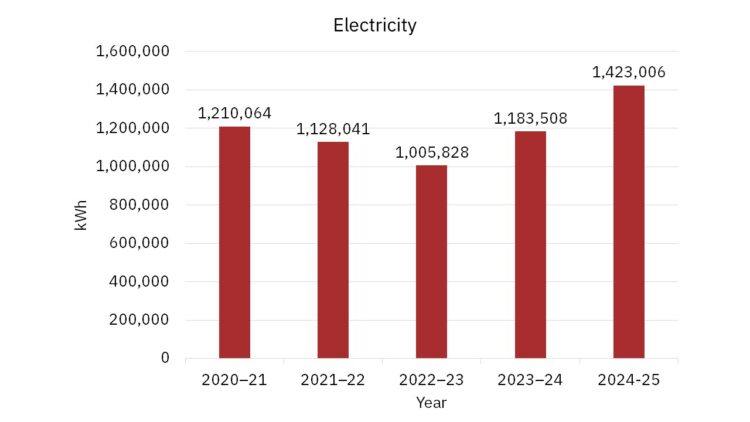
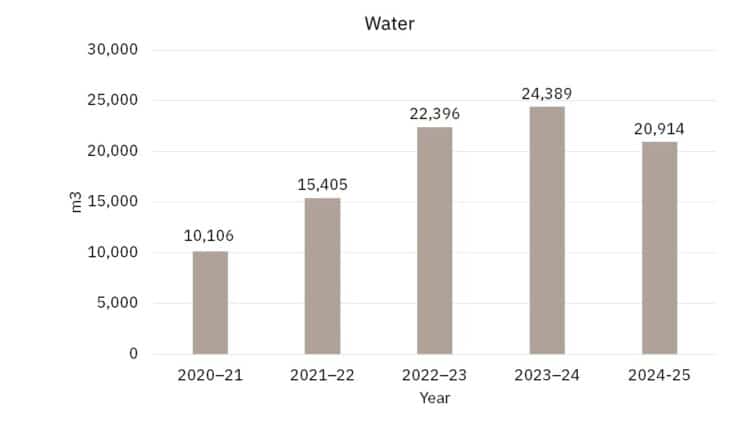
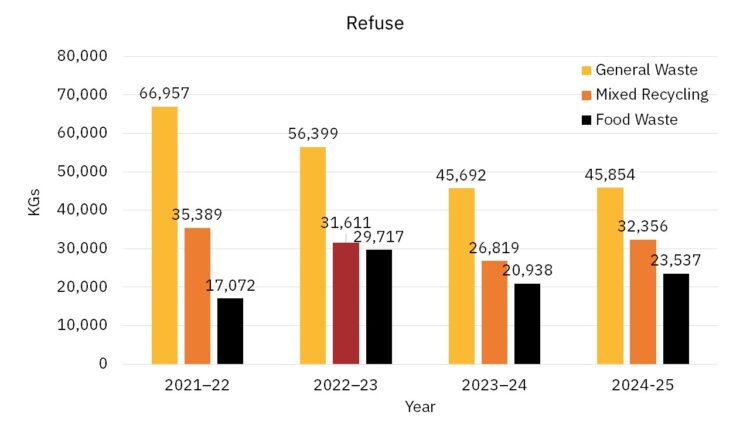

‘Year’ in the graphs above refers to the academic year (1 October–30 September).
Please note that the College was only minimally populated from end of March 2020 to end Sept 2020 due to the nationwide lockdown, which led to a significant reduction in the need for heating on site.
The Hall also has a publicly available Utility Readings Dashboard website where further data can be viewed.
Our CO2e Emissions
CO2e, or carbon dioxide equivalent, is a standard unit for measuring carbon footprints. The idea is to express the impact of each different greenhouse gas in terms of the amount of CO2 that would create the same amount of warming (Global Warming Potential, GWP). The lower the CO2e, the lower the impact the activity has on the environment.
‘Year’ in the table below refers to the academic year (1 October–30 September).
| Year | KGs |
|---|---|
| 2020–21 | 539,120 |
| 2021–22 | 591,007 |
| 2022–23 | 653,421 |
| 2023–24 | 579,988 |
| 2024-25 | 502,662 |
Refuse
The College’s refuse company has only relatively recently started providing data on the weight of waste and the split between categories of waste. All food waste is sent to a local biodigester.
| Year | General Waste (KGs) | Mixed Recycling (KGs) | Food Waste (KGs) | TOTAL |
|---|---|---|---|---|
| 2021–22 | 66,957 | 35,389 | 17,072 | 119,418 |
| 2022–23 | 56,399 | 31,611 | 29,717 | 117,727 |
| 2023–24 | 45,692 | 26,819 | 20,938 | 93,449 |
| 2024-25 | 45,854 | 32,356 | 23,537 | 107,747 |
Other Commodity Use
The College is monitoring some key commodities to evaluate progress towards becoming one of the greenest colleges in Oxford.
| Year | Electricity (kWh) | Gas (m3) | Water (m3) | Plastic Bottle/Aluminium Use (items) |
|---|---|---|---|---|
| 2019–20 | 1,037,967 | 265,764 | 6,596 | 4,789 |
| 2020–21 | 1,210,064 | 264,959 | 10,106 | 121 |
| 2021–22 | 1,128,041 | 290,460 | 15,405 | 324 |
| 2022–23 | 1,005,828 | 321,134 | 22,396 | 757 |
| 2023–24 | 1,183,508 | 285,044 | 24,389 | 145 |
| 2024-25 | 1,423,006 | 247,041 | 20,914 | 403 |
Biodiversity Baseline
The image below shows the results of two audits (2021, 2023 and 2025) of the Hall’s biodiversity across Queen’s Lane and NSE sites. Find out more about the College’s biodiversity results in our ‘Current Activities’ section below.
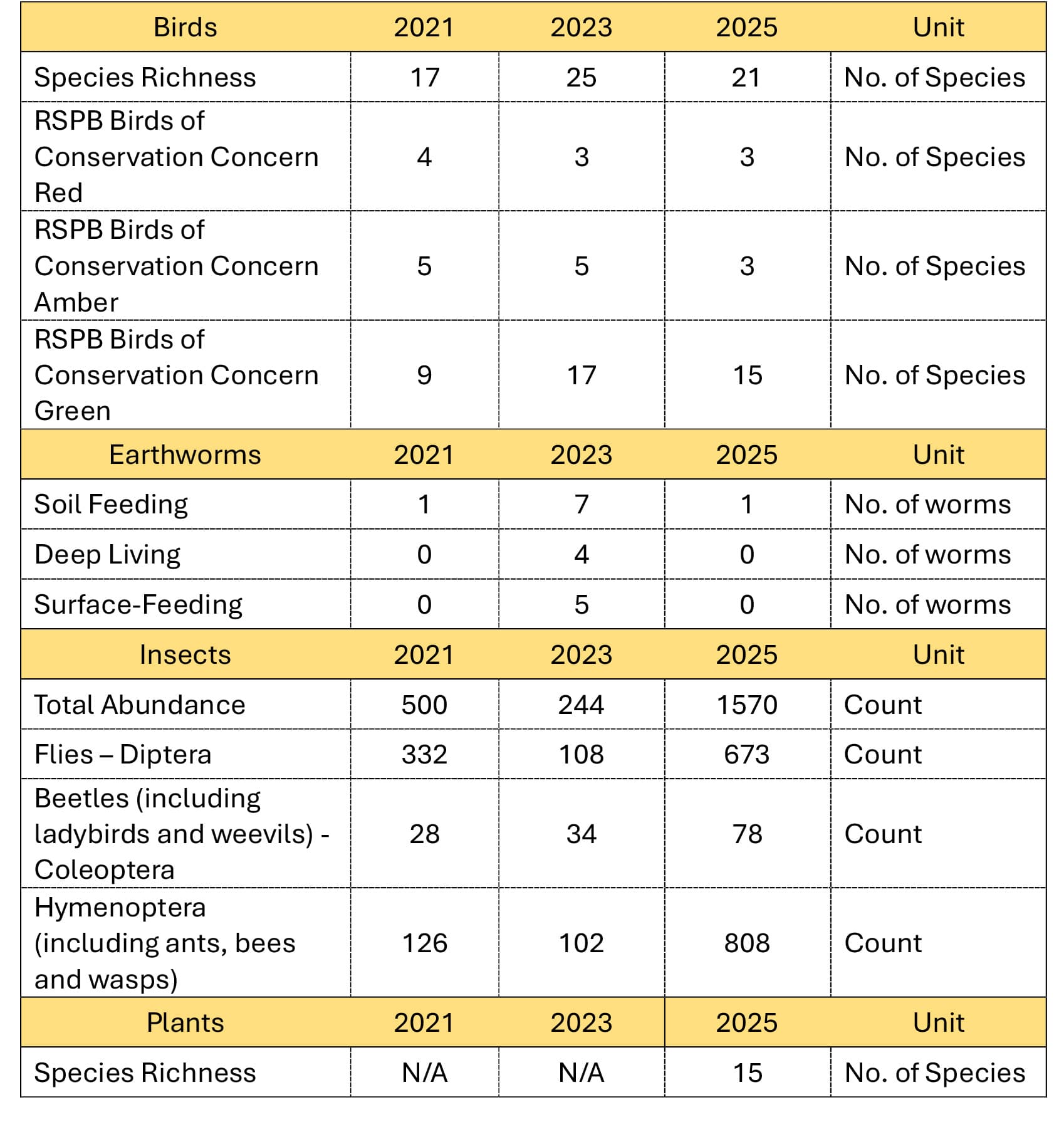
Our Sustainable Aims
Below is a summary of our key strategic aims. For more information, see the St Edmund Hall Environmental Sustainability Strategy 2022.
Energy
We aim to greatly reduce our energy use through upgraded heating and lighting systems, improved building insulation and a move towards more self-generated energy so that by 2030 we become as close as possible to net zero energy.
Waste
We aim to reduce the amount of waste (food, plastics, paper, water, green waste, electrical items, and white goods), including the elimination of single-use plastics, and a move to a paperless system where possible.
Water
We aim to reduce the amount of water usage through improved water management, installing waterless systems and the recycling of water where possible.
Greenness & Biodiversity
We will increase the greenness and overall biodiversity of College sites, through measures including green walls and rooftop gardens, pollination friendly planting and tree planting, in order to achieve net biodiversity gain.
Carbon Footprint
We aim to greatly reduce our carbon footprint associated with transport to and from College (both locally and internationally), including use of electric vehicles and enhanced support for using sustainable transport options and carbon offsets.
Climate Conscious Investment and ESG Principles
The College’s investments are made according to Martin School Principles and with regard to strict environmental, social and governance (ESG) policies. The Hall’s ‘St Edmund Hall Endowment – Investment Policy‘ is available to read on our website. This policy outlines our ESG Investment criteria.
Current Activities
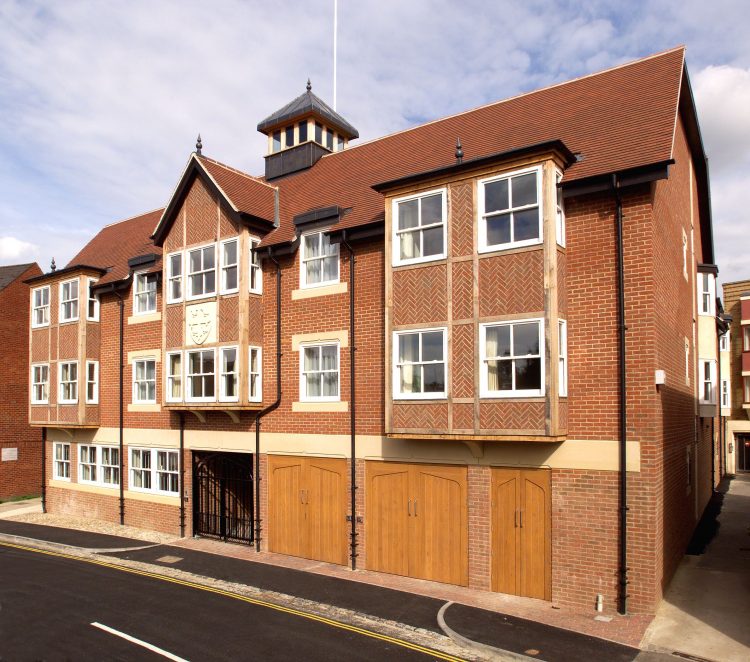
In October 2025, the William R. Miller Building has become the College’s first retrofitted carbon-zero building, following the full replacement of its gas systems with renewable electric heating and hot water.
The College’s 55-bedroom William R. Miller Building on Dawson Street, opened in 2004, was originally operated with electric heating and gas-fired hot water systems throughout.
At the beginning of Michaelmas Term 2023, the Estates team installed a new all-electric boiler system, known as a “Sunamp” in a small three-bedroom apartment within the building, replacing the aging gas system.
The Sunamp unit was monitored over the following year as residents benefited from fully electric, carbon-free heating and hot water.
After a successful trial, the team began converting the remaining apartments. By the end of September 2025, the final gas-fired hot water boiler was removed and replaced with an electric system. With heating and hot water now fully electric, the gas supply to the building has been completely removed.
As all of the College’s electricity is generated by wind power, this marks a significant milestone – our first retrofitted carbon-zero building.
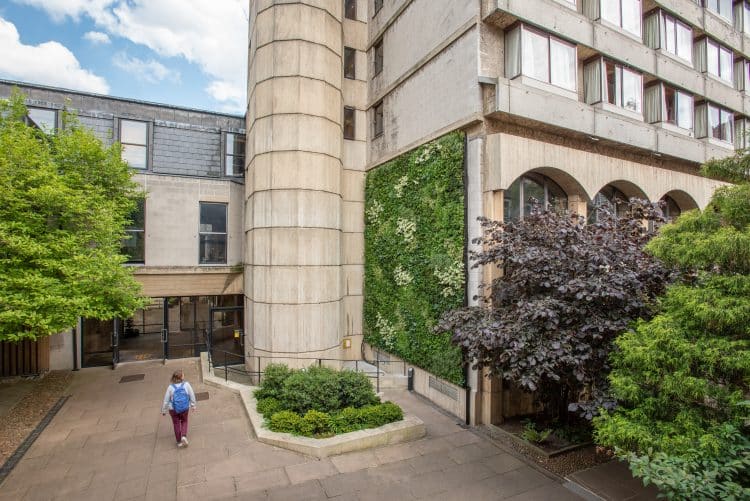
St Edmund Hall is proud to be the first Oxford college to install a Living Wall in May 2019. The wall, which measures 39m2, includes over a dozen plant varieties: ferns, grasses and hostas are interplanted with flowering evergreen perennials to give year-round interest and colour.
Evidence suggests that green spaces are beneficial for our health and wellbeing. The rear section of our main site on Queen’s Lane, where most students are accommodated, currently has very little green space. We’re looking at how our concrete areas can be transformed into a dynamic environment that inspires students. Find out more about the Living Wall installation and benefits on our website.
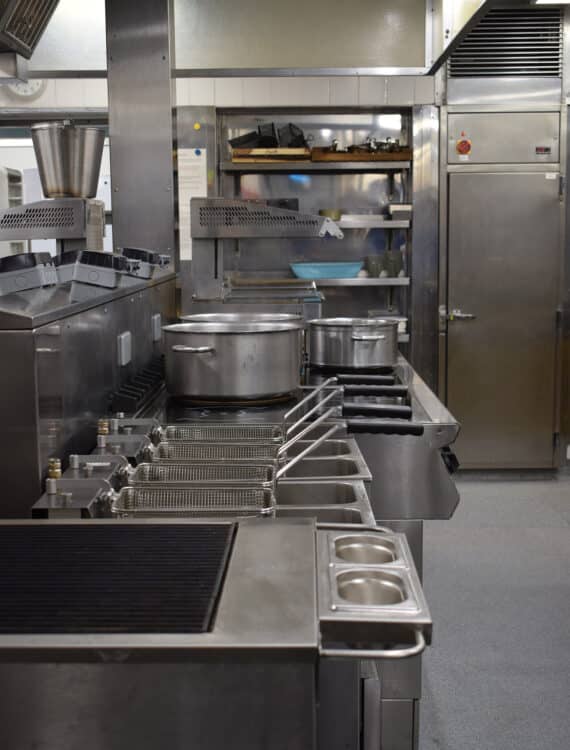
As of summer 2024, the College Kitchen officially became gas-free, replacing the gas chargrill – the last piece of equipment fuelled by gas – with a brand-new electric version. The equipment upgrade provides the College with multiple important benefits such as improving the working environment for Kitchen staff and reducing our carbon footprint and energy consumption.
In particular, gasless cooking reduces air pollution for our staff and diners – cooking with a gas stove creates nitrogen dioxide and releases airborne particles which are lung irritants. Gas-free solutions also decrease street-level air pollution around commercial kitchens.
to increase the amount of locally produced food we serve at College, we are using local suppliers through the OxFarmtoFork short food supply chain initiative set up by Good Food Oxfordshire.
Short food supply chains have multiple advantages, including supporting the local economy and community, enabling producers to keep a larger slice of the profit, and reducing packaging and food miles. Look out for weekly updates on the local produce being used via the @sehkitchen Instagram account and also on our menus.
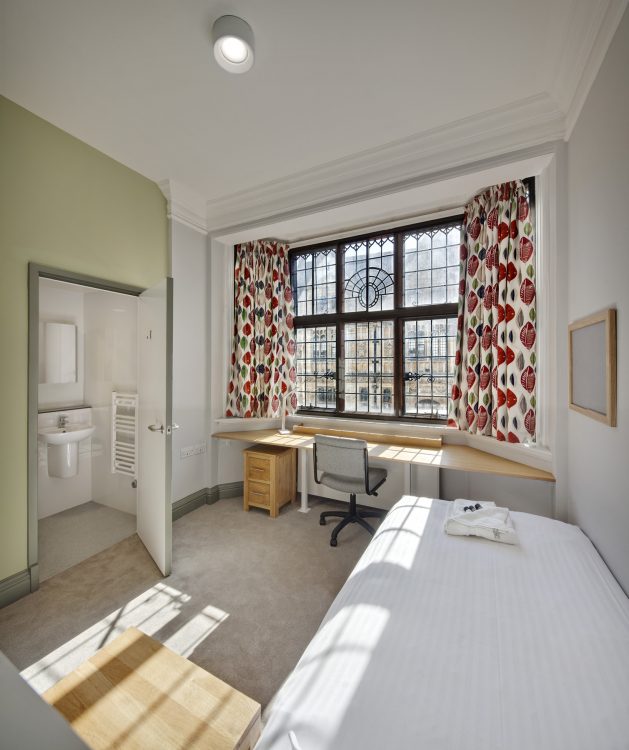
The Hall has recently completed the refurbishment of 49-56 High Street (Besse Building), which is one of the main student accommodation blocks at the College. We have made significant efforts to improve the sustainable credentials of the building including installing double glazing to the rear and substantially increasing the amounts of insulation in the building. New technology has also been installed that recovers heat from the wastewater produced by the en-suite showers and this reduces the hot water demand by approximately 25%.
The Besse building on Queen’s Lane as well as 24 and 26 Norham Gardens and Flat A and B at 1 Crick Road have a new interactive heating control system in every room called EcoSync. Students and guests can scan a QR code to alter the temperature on their smart radiator valve to alter the temperature which feeds back to the EcoSync’s cloud-based management platform.
You can see how much energy is being saved in a real-time ‘leader board’ for each cluster of the Besse building on their smart phone.
The system is also being linked to the Hall’s accommodation booking systems which will enable the proactive ‘switching-off’ of heating to empty rooms, greatly improving the Hall’s energy efficiency
All of our electricity is sourced from renewable energy.
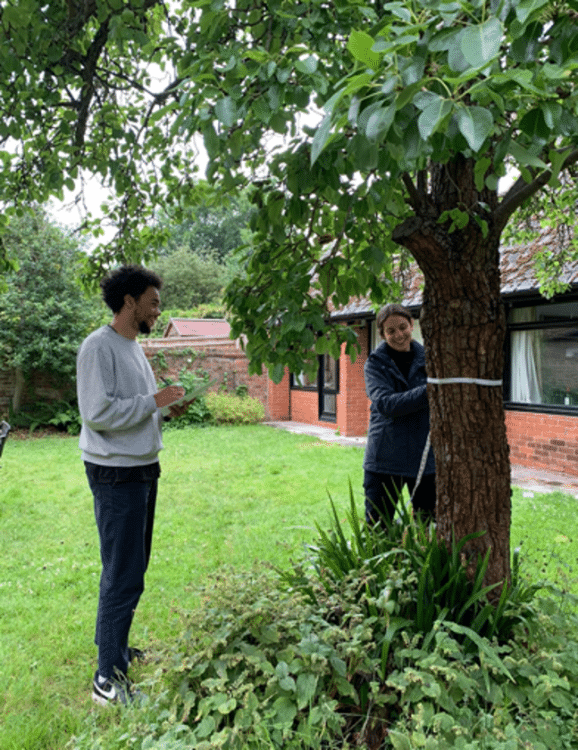
2025 Audit
Data collection for the 2025 St Edmund Hall Biodiversity audit was completed in June 2025. Data collection methods were replicated from the June 2023 audit except for the addition of a plant biodiversity survey. Outlines of our methods and any changes to previous years can be found throughout the document. This report details the data collected in 2025 compared with the 2023 and 2021 baseline data for insects, birds, and earthworms, representing data points for St Edmund Hall to establish biodiversity trends and assess progress towards biodiversity restoration goals. Land and Tree cover were not surveyed and details of the College’s Land and Tree cover and carbon audits from 2021 are reported after the updated sections of the audit.
2023 Audit
Data collection for the 2023 St Edmund Hall Biodiversity audit was completed in June and July of 2023. Data collection methodologies were a replicate of the original Conference of Colleges 2021 Biodiversity Audit, and further details of audit methodologies can be found in the supplement of this document. This report details the data collected in 2023 compared with the 2021 baseline data for insects, birds, and earthworms, representing the first datapoint for St Edmund Hall to establish biodiversity trends and assess progress towards biodiversity restoration goals. Due to a lack of change in land and tree cover in the college from 2021-2023 these portions of the biodiversity audit were not repeated in 2023. The results of the original land cover and carbon audits from 2021 are reported after the updated sections of the audit.
2021 Audit
The Hall took part in a baseline audit of its biodiversity on the Queen’s Lane and NSE sites over 9th & 10th week of Trinity term 2021. Students, staff and Fellows participated in the audit which involved measuring the different landcover types, trees, birds, insects and earthworms. Full results from the audit can be found at the following link but headline features include: i) vegetation in the college grounds currently stores ~25 tonnes of carbon (which equates to around 92.4 tonnes CO2e); ii) the QL and NSE sites support 58 trees (30 different species); iii) the College grounds provide habitat for 18 different species of bird, of which 15 are classified as of conservation concern; iv) over 500 insects were captured during a 3-day interval including 126 bees and insects known to be important for pollination and pest control; v) Sadly we appear to have only one earthworm in the College grounds!
In total 18 colleges took part in this biodiversity audit exercise and there are plans to repeat this on an annual basis to enable us to record trends in biodiversity, and the success of any actions that we implement to increase overall biodiversity on college sites.
We send our food waste to be recycled at Cassington. This facility has a long term contract with Oxfordshire County Council and processes over 50,000 tonnes of solid and liquid wastes a year collected across Oxfordshire, generating 2.1MW of electricity and producing an excellent bio-fertiliser.
- St Edmund Hall no longer sells plastic water bottles in the Servery or bar.
- Fresher students receive reusable water bottles on their arrival in College, provided by the St Edmund Hall Association (SEHA).
- Two water fountains were installed at the Queen’s Lane site in 2019.
- Refillable glass bottles and a water filtration machine were purchased to meet conferencing, dining and meeting needs in 2019.
We actively encourage staff to travel on public transport to the Hall and have introduced a salary-sacrifice cycle purchase scheme to encourage cycling to work. We also have schemes for interest-free loans on season tickets for buses and trains.
Future Projects
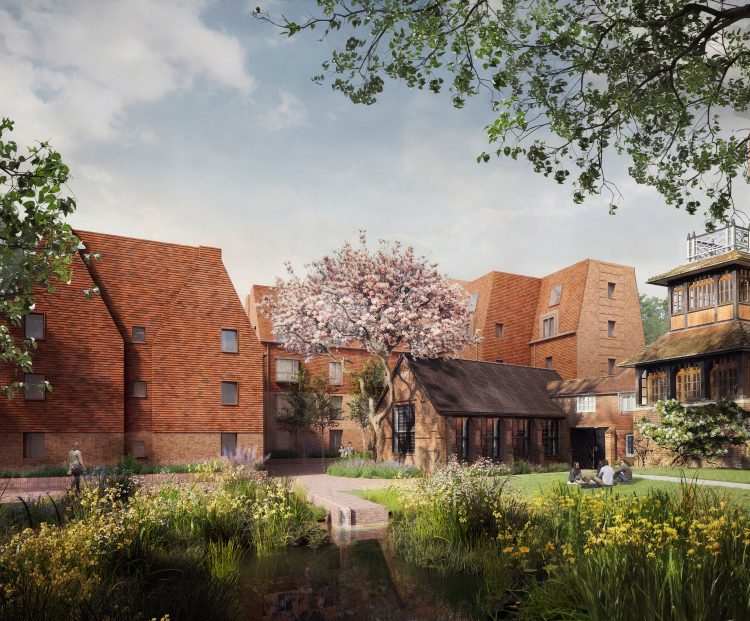
St Edmund Hall was granted planning permission on 24 January 2023 for the development of 127 study bedrooms and communal facilities housed in a mixture of new buildings and a remodelled Victorian villa, in the College’s Norham St Edmund site in north Oxford. The planning committee was unanimous in its support of the project and particularly commended the environmental sustainability aspects of the proposed design.
This is an important project for the College, as it brings together several strategic aims: helping ensure that the College can meet its goal of accommodating all of its undergraduate students, moving towards becoming net zero in energy use, improving access, encouraging biodiversity, and catalysing a creative and inclusive college culture.
The residential development will be a pioneering model of sustainability, with new construction designed to rigorous Passivhaus standards. The landscape and ecology strategy is designed to improve and enhance biodiversity, with an 80% net gain over the site. Construction will commence in summer 2023, and the accommodation is due to open in the Autumn 2026.
We are currently auditing our gas central heating system to assess which green systems can replace our gas boilers in the future.
Hall Statements on Sustainability
- St Edmund Hall has assessed its carbon baseline and published it on this webpage in accordance with our Environmental and Sustainability Strategy 2022.
- We commissioned a decarbonisation plan for the College from Max Fordham and Original Field Architecture. This has been funded by the Government’s Public Sector Decarbonisation Scheme.
- We have set out our public milestones for our sustainability aims in the Hall’s 10 year strategy on page 27. Notably, we aim by 2030 to become as close as possible to zero net energy use, e.g. implementing energy production through open-loop geothermal energy, solar panels, biodigesters and/or other means.
- We are working on a policy that will recognise Environmental, Social and Governance (ESG) considerations when accepting grants and donations.
- When St Edmund Hall receives a gift, donation, grant or scholarship it is rigorously debated and scrutinised through the College’s governance system.
- We are looking into a policy which explicitly recognises Environmental, Social and Governance (ESG) considerations with respect to the Hall’s banking relationships.
- The College’s Investment Policy is specific in its ESG principles, including being subject to Oxford Martin Principles. The College’s portfolio is managed on our behalf either by Oxford University Endowment Management (OUEM) or Rathbone Greenbank, the latter is subject to the specific investment criteria as per the ‘St Edmund Hall Endowment – Investment Policy‘. This policy is published on the College’s website under policies.
- St Edmund Hall established the Sustainability Sub-Committee in 2020. It brings together a core group of people across the College to develop and monitor the success of our College Sustainability Strategy. This Committee reports to the General Purposes and Bursarial Committee (GPBC) on a termly basis. Actions agreed by GPBC are signed off at Governing Body Meetings. If you have any questions for the Sustainability Sub-Committee, please contact the Committee Chair via the following email address: bursar@seh.ox.ac.uk.
Sustainability News
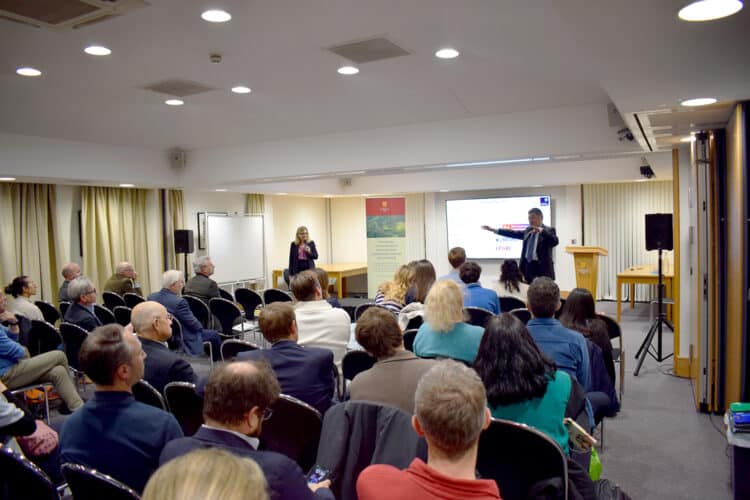
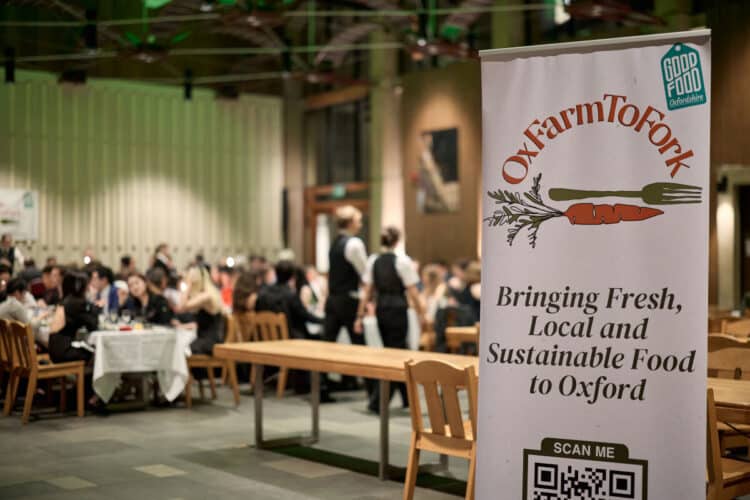

A Carbon-Zero Milestone: William R. Miller Building becomes Teddy Hall’s first all-electric residence
15 Oct 2025
